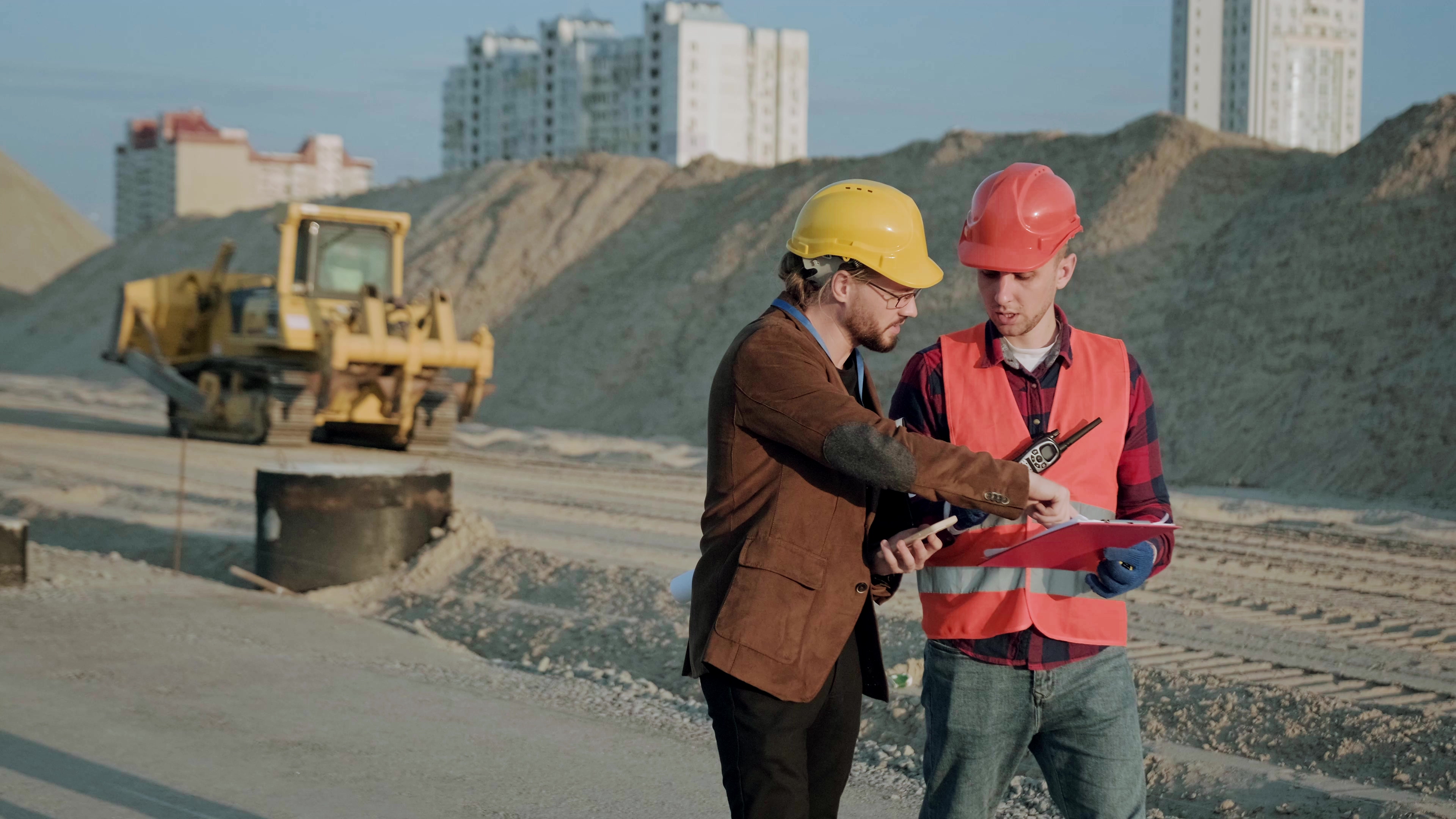Your destination for all things heavy civil – from job site interviews to industry insights.

The construction landscape is evolving fast, and the strategies needed to win projects are changing with it. While a strong reputation and word-of-mouth referrals still matter, they’re no longer enough to keep a competitive edge. As 2026 approaches, companies that adopt modern marketing approaches will be best positioned for long-term success. Discover the trends that will be integral for marketing in the construction industry so you can build a strong brand and a healthy project pipeline.
The construction industry is notoriously slow in adopting new technology. This can no longer be the case if you want to be competitive. Decision-makers start their search for contractors online, so if your company isn’t visible on the internet, there will be no way for new customers to find you.
Guesswork can no longer be a part of your marketing strategy. Data-driven decisions are what you need to use to guide your marketing. It will inform you of what is and isn’t working so you can adjust accordingly. Great free tools to help you get started are Google Analytics and Google Search Console. They will monitor your website's performance, show which pages get the most visitors, how long they stay on pages, and where they come from (i.e. organic search, social media, direct traffic, email, etc). By reviewing metrics like website traffic, social media engagement, and campaign performance, you can make smarter decisions that are based on data, not what you think is working or isn’t working.
In the heavy civil construction industry, AI and generative tools are transforming how projects are planned, executed, and managed. AI-powered systems can analyze vast amounts of data from site conditions to equipment usage, helping teams identify risks, optimize workflows, and improve safety. Predictive analytics allows contractors to forecast potential delays, cost overruns, or maintenance needs before they occur so you can proactively make decisions that save time and money. Generative tools can assist in designing project layouts, modeling scenarios, and creating construction plans with greater efficiency and precision. Together, these technologies are helping companies work smarter, reduce waste, and deliver projects more reliably in an increasingly competitive market.
From automatically generated proposals to tailored imagery, creatives, or even virtual mockups, generative AI will make it easier and faster to produce high-quality marketing content. This means more personalization at scale (e.g. proposals, web pages, client communications) with less manual effort.
According to a study by researchers at Harvard Business School, “AI helped human agents respond to chats some 20 percent faster.” So expect more companies to have AI chat features on their websites in order to respond instantly to inquiries, schedule meetings, give preliminary quotes, etc, because these will help increase response time and improve customer service.
Virtual assistants can help schedule meetings, provide project information, and help with all the initial intake paperwork, freeing up staff to focus on high-value tasks. Automated lead follow-ups keep prospects engaged with reminders and updates, increasing the likelihood of converting leads into active projects. By adding chatbots, virtual assistants, and automated lead follow-ups to workflows, this will help improve customer response time, nurture relationships easier, and maintain a steady pipeline of qualified opportunities.
Local SEO and “near me” searches will continue to grow in importance. Construction companies need to make sure their digital presence (i.e. Google Business Profile, local directories, maps, reviews, etc.) are optimized so prospects are able to find you. This is especially important when developers, municipalities, or contractors search for heavy construction services nearby. Optimizing your website with location-specific keywords (e.g. “material suppliers near me”), maintaining accurate business listings, and garnering positive local reviews helps build credibility and visibility. By optimizing for local SEO, you can capture more qualified leads because you will be at the top of the search results page. If you don’t have the budget to pay for an SEO tool, you can find keywords in Google Search Console.
Short form video content will be important, especially to capture new customers that use social platforms to find things. Think about creating content for TikTok, Instagram Reels, and YouTube Shorts. See which social media platforms perform the best, and then focus on those ones.
Educational content (i.e. safety topics, project management, materials, etc.) is important to create and have it live on your website. Construction projects are complex, so by helping potential clients understand what goes into their investment, you not only clarify expectations, but also build trust and credibility.
UGC and social proof can be great ways to build credibility and trust with prospective clients. Showing photos, videos, and testimonials from satisfied clients, subcontractors, or community stakeholders highlights real-world project outcomes like completed roadways, bridges, or infrastructure improvements. By sharing authentic experiences from those directly involved in or impacted by your projects, demonstrates your company’s expertise and reliability in a tangible way.
Eco-friendly materials and low/zero carbon construction will increasingly become a key differentiator. Clients, especially commercial and municipalities will look for transparency in carbon costs and sustainability credentials such as LEED and BREEAM.
Sustainability is increasingly becoming tied to regulatory requirements and available grants or incentives, and marketing messaging can help show how your company is using sustainable materials and properly disposing of them. Highlight compliance achievements and eco-friendly initiatives in proposals, websites, and case studies, to demonstrate responsibility and show that you are thinking about the environmental impact your projects could have.
The construction industry has never been more competitive, so the right marketing strategy is what will help you stand out. By embracing digital technologies, optimizing your website and Google Business Profiles, showcasing your sustainability initiatives, creating video content, and getting reviews, your company can attract the right prospects who are looking for exactly what you offer.

.svg)
.jpg)
.svg)

.svg)